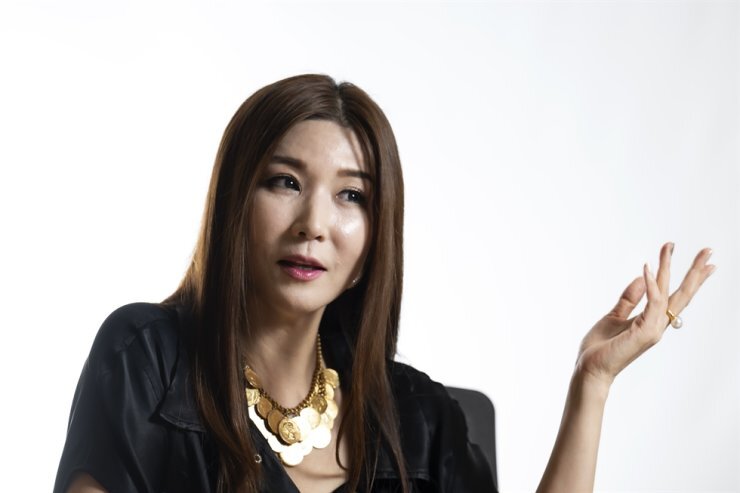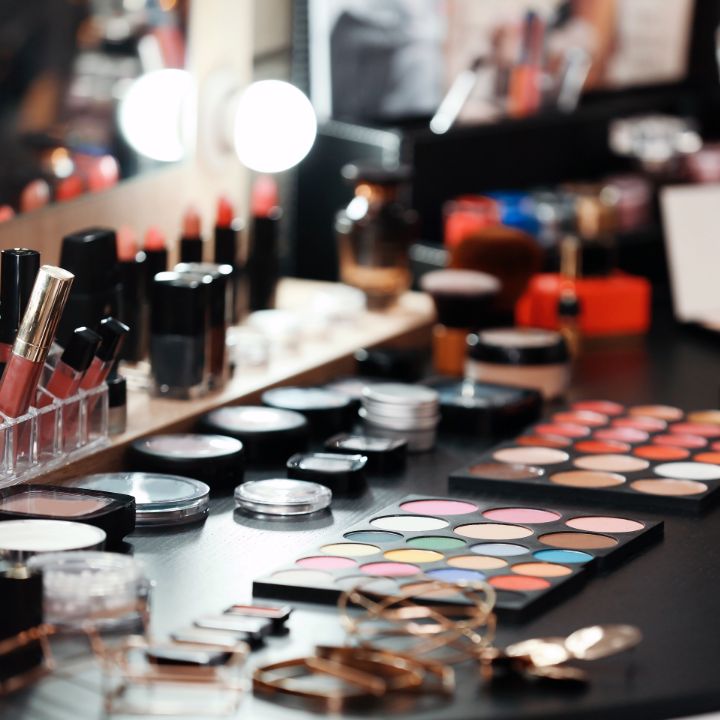INTERVIEW Top Korean makeup artist in Japan talks about Seoul-Tokyo ties


As a top globally recognized makeup artist in Japan, Lee So-ah is a Korean resident of Japan who opened a luxury hair and beauty salon in a prosperous Tokyo district. She was also an executive producer of Paris Haute Couture's collection from 2007 to 2016.
She makes cosmetic products tailored to the client's facial type. "It is important to choose targets in making the products," she told The Korea Times. "Then, the price and packaging of the products are determined. For example, the Japanese focus more on base makeup while Koreans prioritize tones."
She cited the case of Hime Gyaru fashion that hit Japan in the 1990s, which featured a highlighted smoky-eye makeup set against a white base. "Most Japanese people want to have a whiter face," she said.
She became a phenomenal success through a Japanese home shopping TV program, after making 300 million won ($236,000) by selling about 2,000 cosmetic products within one hour in 2012. Riding on that success, she started appearing on Korean and Japanese TV shows. She shed light on the traditions and pride that Japanese have in their cosmetics industry. "It means that they price cosmetic products more expensively than in Korea because they have a long history of making them by themselves," she said.

Asking about the difficulties she had to overcome while working in Japan, she underlined the importance of positivity. "I can say I have an affirmative attitude ready to fight against hardship," she said. "I suffered setbacks due to unseen and sometimes adroit discrimination against Koreans doing business in Japan, like me. Such discrimination was all the more unbearable for women. I have many experiences of my projects being stonewalled in the final stages. During the difficult times, I lost many people but also gained a few sincere friends, mostly Japanese. They supported me unconditionally while advertising my business and boosting my business."
It was a coincidence that Lee developed her dream in Japan. It began with a 1986 family trip to Japan when she was a teenager, that familiarized her with Japanese culture and led her to decide to enter a Japanese high school. She enjoyed her school life with many Japanese friends. She said Japan seemed more open than Korea at that time. "Japan seemed freer, and students wore miniskirts," she said. "There were alcohol vending machines on the streets too. I felt more freedom in Japan (than in Korea)."
Lee decided to pursue a career as a singer in Japan. However, there was no infrastructure for aspiring singers to promote themselves. So she turned her eye to makeup and hair design, which became a turning point in her life. "My first dream was to become a singer, but makeup became my job after people recognized me for my skills," she said.
That was the beginning of Lee's journey as a global artist. She started learning Japanese to communicate more easily with the people she interacted with on a daily basis. "I wanted to give a better image to others. The first step to do that was improving my Japanese."
Lee defines beauty in terms of health. "It is simple to be beautiful. Eat well, sleep well and think positively ― that will make you beautiful. Trusting oneself is also significant."

Lee also gives her thoughts on makeup on social media platforms. She said young people tend to follow trends on social media and people are now starting to use makeup from a younger age. Lee views these developments positively. "It means women know how to take care of themselves both externally and internally. Women these days seem to know how to show themselves through makeup, but a little bit of integrity will be needed," she said.
"One of my dreams is for one of my colleagues who worked with me for 20 years to become a CEO. I want to see that before I retire. They are my family. I could continue my work this long as they were always with me. I faced immense discrimination while living in Japan but managed to overcome it with the help of my colleagues, mostly Japanese friends."
As neighboring countries with overlapping history, both good and bad, Korea and Japan can be complementary and mutually benefiting partners, Lee said.